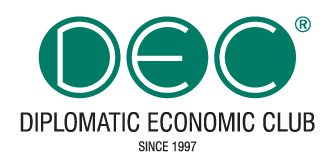The EU measures to manage the financial sector: expected effects for banks
Eugene Eteris, European Integration Institute, Denmark, LLD, prof.
The economic and financial crisis in the EU has had a negative effect on both public and private sectors: the latter being affected, generally, through banks. It is generally recognised that the bankers’ practice brought national economies to the brink of ruin. The EU’s massive efforts to exert control over financial sector’s institutions through numerous efforts since the end of 2008 are generally regarded as quite efficient, except for some sectors and a few countries.
The article is prepared for the Round Table „Baltic States’ bank sector: lessons from the modern crisis“, organised by the Baltic International Academy, Latvian Employers Association and International Web-Magazine „The Baltic Course“ on 24st of February in Riga, Latvia.
The negative effect of financial institutions on economies was felt in all EU member states and in both private and public sectors. First public reaction was to bailout the falling banks: e.g. in the Baltics, with the most vivid example of privatized Parex Bank, though examples are numerous in other EU states as well on another side of the Atlantic. When the financial crisis went deeper into the economic spheres and „returned“ in full swing into the public sector (in the period’s beginning at the end of 2008- start of 2009) only big and powerful states could afford „saving“ the banks. In 2009 most of the EU members adopted new „salvation“ economic policies, however, the loss of national wealth caused by the measures to alleviate the crisis made some EU states particularly exposed to negative outcomes for employment and public spending.
These measures will have to take time to be assessed and implemented in the member states. So far, numerous states experience great after-chock effect when „real bank’s influence“ on economic development is felt in the beginning of 2010, e.g. in Greece.
Main lesson from the financial crisis was that national supervisory structures were insufficient to supervise internationally active banks; hence the need for powers to regulate cross-border banks in line with the European level effective oversight.
First steps
After the signs of full-blown crisis swept European states, the EU institutions’ first reaction was through Council’s actions. Member states’ ministers of economy and finances made some recommendations in October 2008 that their agreed to follow; these recommendations, turned into so-called „common position“, are well worth remembering:
— Interventions should be timely and the support should in principle be temporary;
— The member states will be watchful regarding the interests of taxpayers;
— Existing shareholders should bear the due consequences of the intervention;
— The governments should be in a position to bring about a change of bank’s management;
— The banks and financial institutions’ management should not retain undue benefits, i.e. governments may have inter alia the power to intervene in remuneration (banks’ bonus culture can be described as „heads I win, tails you lose“);
— Legitimate interest of competitors must be protected, in particular through the state aids rules;
— Negative spill over effects should be avoided.
Full text at the website of The Baltic Course The EU measures to manage the financial sector: expected effects for banks










